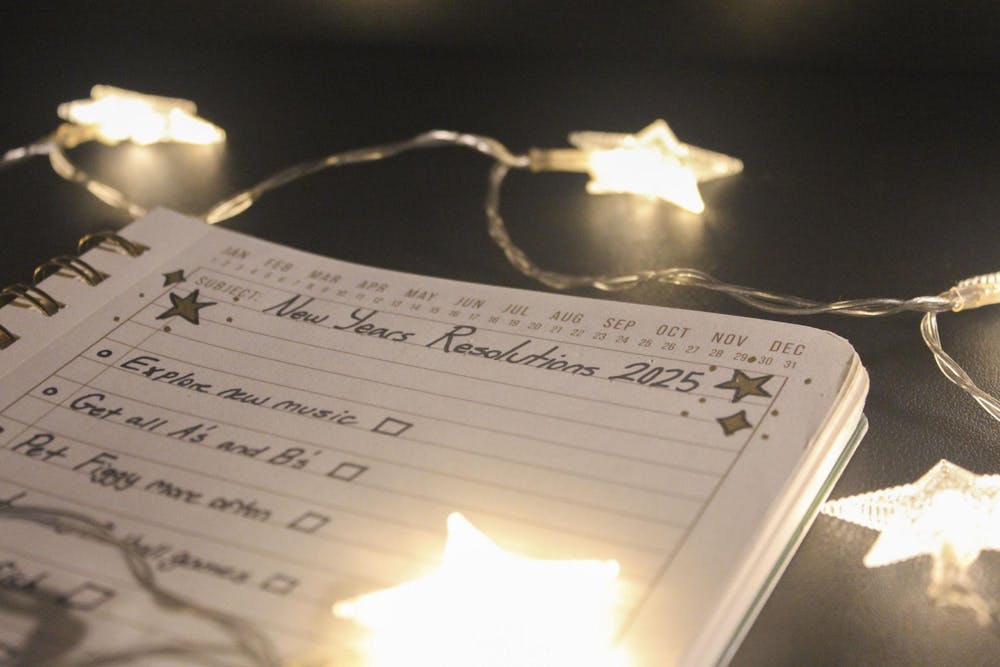As the 2024 season comes to a close, students may find themselves participating in the New Year's tradition of setting resolutions. Students should follow through with these resolutions for a well-rounded year that promotes positive mental and physical health.
Even though making resolutions has been around for thousands of years, it may be easy for students to overlook these goals. As the year progresses, they may even forget about it entirely. A resolution can be challenging, but it is also worth it in the end.
When wanting to achieve a goal for 2025, students should pick something attainable.
Having an attitude of perfectionism toward New Year's resolutions may be common. Yet, this is a standard that is difficult or even impossible to meet. Having such high expectations toward a goal may make students feel dismayed, leaving a negative impact on their emotional well-being in the process.
Instead of trying something new or extreme, a student who has experience running may set a goal to increase their mileage or times. This would be a beneficial goal since running is something that they are already training in. For this student, their resolution is something attainable and may not be difficult for them to achieve. Resolutions are meant to be fun and not another factor of stress added onto a student's plate.
Furthermore, sticking to a resolution may be easier with proper planning.
There are many ways for a student to organize their goals for 2025. This may include journaling, using a habit tracker and even marking it down on their calendar. A goal may seem less daunting and easier to accomplish when written down in front of them because it gives them the proper direction they need to get started.
Writing goals down also helps student's brains remember what the goal is. These written goals help the brain encode and store the information better, contributing to long-term success. A written plan or schedule may be the best way for a student to start outlining their resolution.
On the other hand, keeping up with a resolution may not be possible without a proper routine.
Routine can help lower stress levels in student's lives, which may be beneficial since the new year may present change. A new semester means a new schedule, classes and assignments that have to be balanced with other tasks. Having a routine-oriented goal may help students reduce school-related stress into other outlets.

The more a student repeats a certain behavior, the more likely they are going to stick to it due to the strengthening of neural pathways in the brain. Since routine means repetition, it may be easier to follow through with a goal with an organized schedule.
Resolutions can be tricky. There are many factors as to why goals are abandoned, such as burnout and boredom. Even though sometimes it may seem easier to move on to something else, sticking to these resolutions may help students' emotional and physical well-being.
Students should continue to stick to their New Year's resolutions by being organized, setting achievable goals and sticking to a routine. All of these steps are vital for successful goals and following through with a plan in 2025.

